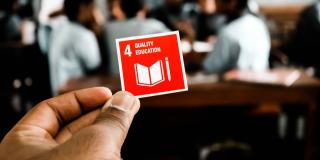
In 2015, world leaders created the Sustainable Development Goals (SDGs): an ambitious global framework to end poverty, protect the planet and ensure peace and prosperity for all. Over five years on, with attention focused squarely on the global pandemic, you’d be forgiven for wondering: does anyone care about the SDGs anymore?
High hopes
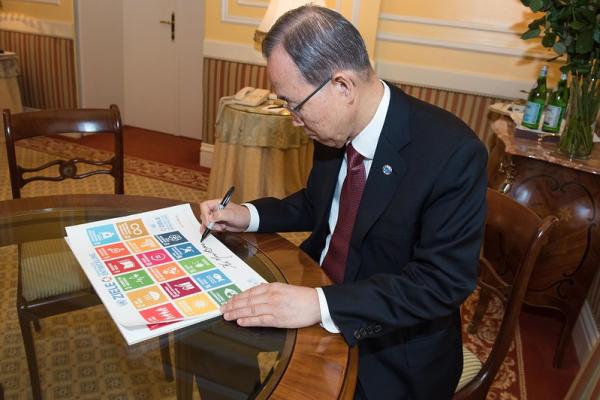
Five years ago, the leaders of 193 countries gathered to create a roadmap for the future.
To reach a collective agreement between so many countries was a remarkable achievement – the result of months of negotiation and hard work.
This resulted in a renewed energy and meaningful commitment to ending poverty and inequality.
Celebrities gathered in Times Square, New York, to celebrate the announcement of 17 ambitious goals to reach by 2030, covering everything from health, education and the environment to peace, justice and security.
The SDGs were intended as a ‘to-do list for people and planet, and a blueprint for success’, according to former UN Secretary-General Ban Ki-Moon.
In the following years, millions of people have learnt about the SDGs and committed to implementing them. But what has happened since the start of the coronavirus pandemic?
Where are we now?
The latest report from the UN paints a bleak picture. The ongoing global pandemic has placed unprecedented challenges to the delivery of the SDGs. As we face the worst public health and economic crisis in a century, for the first time in 22 years we’re seeing an increasing number of people living in extreme poverty. The vulnerabilities of health systems across the globe have been exposed, and inequalities are deepening.
Radical action is required.
Embedding the Goals into all we do
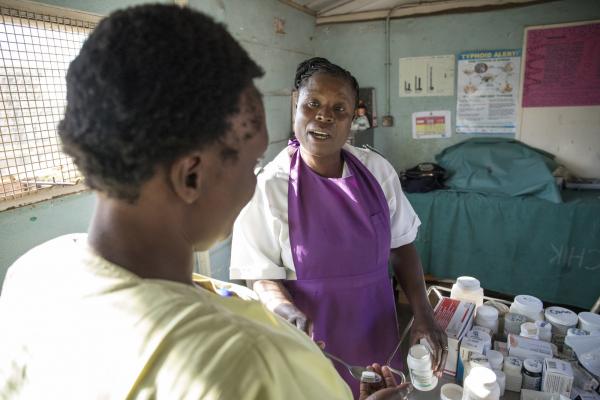
At VSO, as we work to support developing countries to protect themselves against the worst of the pandemic, we haven’t lost focus on the SDGs. They are embedded in all we do.
This means when we design a programme, we do so with the SDGs in mind. Our volunteers help understand their rights and entitlements through learning about the SDG goals.
For example, in Zimbabwe, volunteers are tackling SDG 3 – ensuring healthy lives and wellbeing for all – to assess the prison healthcare system. Inmates use community scorecards and mystery visitors to call attention to the need for better healthcare and sexual and reproductive health provision.
Following this, female inmates now have access to cervical cancer screenings in one facility. At another facility, after raising the issue of poor nutrition and lack of protein in inmate diets, prison management is now providing a more balanced diet.
Volunteers can also support people to present their own reports on how the goals are being realised within their communities, which helps to hold governments to account and incentivises governments to take action to address the SDGs.
Not just lofty ideals
Accountability matters. When governments make a promise, we want them to stick to it. The SDGs are not just lofty ideals. When properly resourced and supported, they can translate into meaningful actions and policies which make a tangible difference to people living in poverty and facing inequity, from the creation of healthcare systems to the implementation of policies and legislation which help protect minority rights.
In Nepal, we've been working to amplify the voice of those marginalised and overlooked by official processes, including those experiencing caste-based discrimination and those from LGBTQI communities. Volunteers have collected the lived experiences of these individuals and shared these testimonies with decision makers. The result? Decision makers understand the complex needs and perspectives of those who so often get left out of these conversations.
The Nepali government included these responses when they were called upon to review their progress at the annual UN conference where countries present on their progress towards the SDGs, known as ‘Voluntary National Reviews’, which was this year carried out entirely online.
A blueprint for recovery
As the world explores how we can recover from COVID-19, the SDGs should be our blueprint to build from. They are for everyone and owned by everyone. Change around the world should be aligned with the aspirations of the SDGs, and the ambition of a fairer world for everyone.
Volunteering is an integral part of this puzzle.
The UN has recognised the value of volunteering for development and in a report published in 2015, noted that volunteers “help to extend the reach of a range of SDG-related services” and concluded that the SDGs would not be delivered without the work of volunteers. In a statement on the unique contribution of volunteering to sustainable development, the UN stated that “by being embedded within communities, volunteers build strong, reciprocal personal and working relationships”.
This approach influences everything we do at VSO, and the long-term relationships we build with communities in our partner countries are key to our success at delivering the SDGs through our development programmes.
Does anyone still care about the SDGs? VSO does, and we’re working to make sure the world delivers on its ambitious promise to ‘leave no-one behind’.
Read more
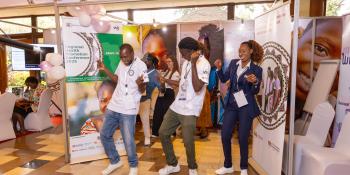
Highlights from the Regional Health Promotion Conference 2025
The Regional Health Promotion Conference 2025 reimagined Universal Health Coverage (UHC) through the lens of intersectionality, by bringing together experts from across East Africa and beyond.
Protecting the biodiversity of the East Tonlé Sap Lake through aquaculture
Aquaculture — the farming of aquatic organisms, such as eels, shellfish, and seaweed, in a controlled environment — is transforming the lives of Cambodian people like Mr Em Phat.
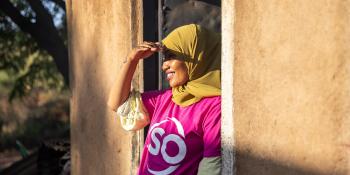
Five things women achieved this year that you might not know about
This International Women's Day, join us in celebrating the resilience of women across the globe with some female achievements you might not have heard about.
